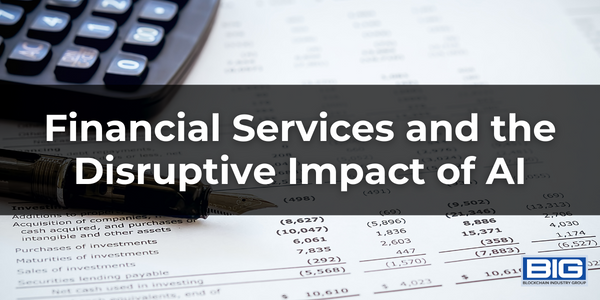
In recent years, artificial intelligence (AI) has made rapid advancements and has begun to play a significant role in many industries. One of these industries is financial services, where AI is rapidly transforming the way things are done and challenging traditional approaches to work. As a result, many professionals in financial services are likely to experience changes to their work, with some areas of work being affected more than others.
This article will detail 10 practice areas that will be impacted because of advances in AI technology.
- Data Entry and Processing: One of the most time-consuming and repetitive tasks for financial professionals is data entry and processing. AI technologies, such as machine learning algorithms and natural language processing, can automate this process and make it much more efficient. This can lead to cost savings for financial institutions, as well as improved accuracy and faster processing times.
- Compliance and Regulatory Reporting: Compliance and regulatory reporting can also be a time-consuming and complex task for financial professionals. With the help of AI technologies, financial institutions can automate this process and ensure that they are in compliance with relevant regulations and laws. This not only saves time and resources, but also reduces the risk of costly fines or penalties.
- Investment Management: Investment management is another area where AI is having a significant impact. AI algorithms can be used to analyze vast amounts of market data to identify investment opportunities and to make predictions about market trends. This allows financial professionals to make more informed investment decisions and to achieve better results for their clients.
- Risk Management: Risk management is a critical function in financial services, and AI can help to automate many aspects of this work. For example, AI algorithms can be used to monitor financial transactions in real-time, identifying potential risks and flagging any suspicious activity. This not only saves time for financial professionals, but also helps to reduce the risk of financial loss.
- Customer Service: Customer service is an important part of the financial services industry, and AI is already being used to improve the customer experience. For example, AI chatbots can be used to answer customer inquiries and resolve issues, freeing up financial professionals to focus on more complex tasks.
- Fraud Detection: Fraud detection is a critical function in financial services, and AI can help to automate many aspects of this work. For example, AI algorithms can be used to monitor financial transactions in real-time, identifying potential fraud and flagging any suspicious activity. This not only saves time for financial professionals, but also helps to reduce the risk of financial loss.
- Credit Scoring: Credit scoring is a critical aspect of the financial services industry, and AI can help to make this process more efficient and accurate. AI algorithms can analyze vast amounts of data to produce credit scores, reducing the time and resources required for manual credit scoring processes.
- Portfolio Management: Portfolio management is another area where AI is having a significant impact. AI algorithms can be used to analyze vast amounts of market data to identify investment opportunities and to make predictions about market trends. This allows financial professionals to make more informed investment decisions and to achieve better results for their clients.
- Trading: Trading is a critical aspect of the financial services industry, and AI is already being used to automate many aspects of this work. For example, AI algorithms can be used to analyze vast amounts of market data and to make predictions about market trends. This allows financial professionals to make more informed investment decisions and to achieve better results.
- Financial Planning and Advice: Financial planning and advice is a critical aspect of the financial services industry, and AI is already being used to provide automated financial advice to customers. For example, AI algorithms can analyze a customer’s financial situation, taking into account their goals, risk tolerance, and investment history, to provide personalized financial advice. This not only saves time for financial professionals, but also provides a more efficient and effective solution for customers.
The Art of War: The Role of Robots, AI, Blockchain,DAOs, Tokens, and NFTs
—
The Basics of Machine Learning
—
The Basics of Natural Language Processing (NLP)
In conclusion, the advancements in AI technology are rapidly changing the financial services industry and impacting the work of highly educated knowledge professionals. From data entry and processing, to investment management and financial planning, AI is automating many tasks and allowing financial professionals to focus on more complex and value-added work. As the financial services industry continues to evolve, it will be critical for professionals to adapt to these changes in order to remain relevant and successful in the years to come.



